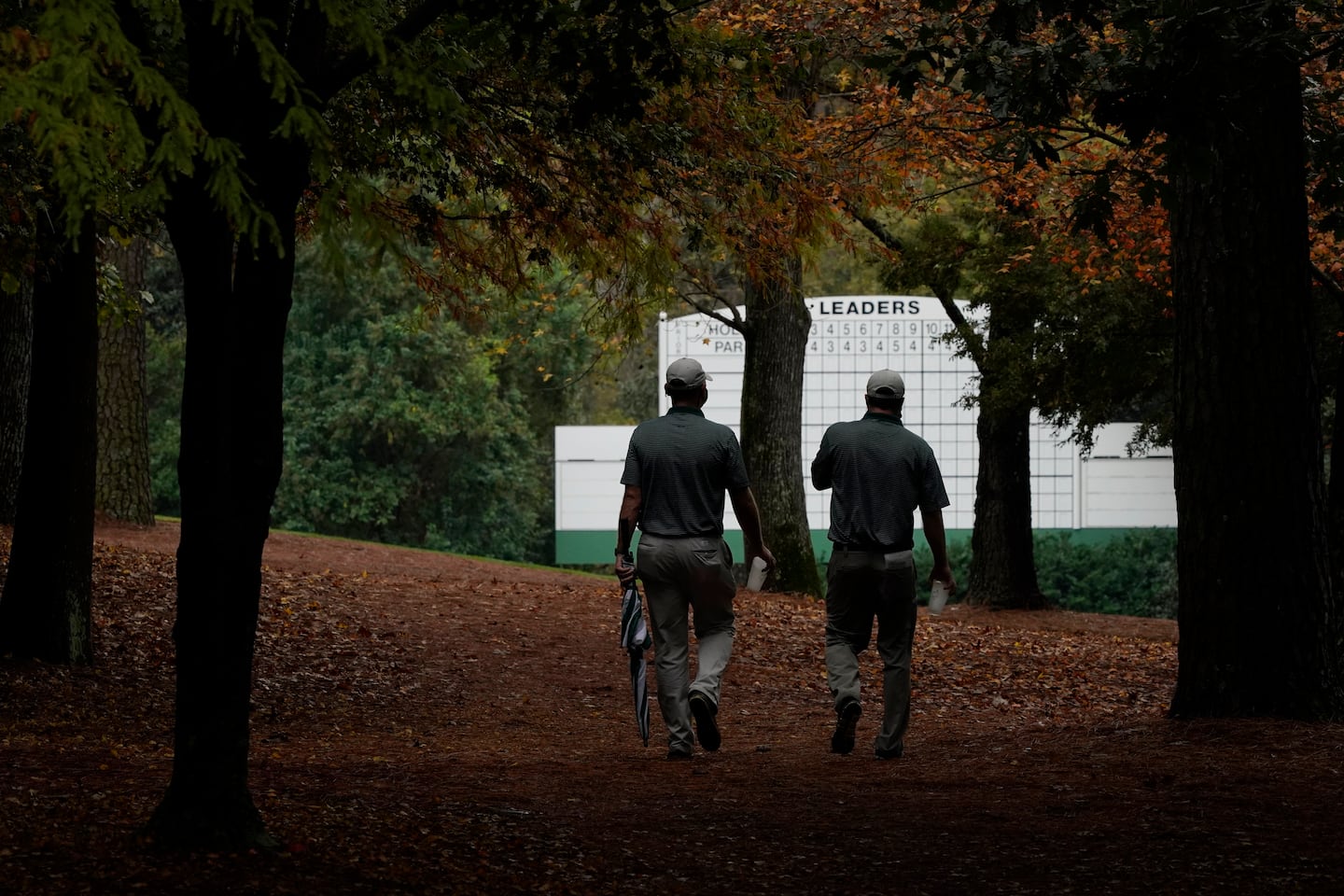In a grim year, a November Masters is something to be thankful for

Starting Thursday, I plan to watch almost every minute of the Masters — perhaps I will take breaks to eat — and probably enjoy the golf as much on television in stark November as in person in azalea April.
But, I suspect, what sports have given me does not begin to approach what it has meant to others.
In March, I got a friendly email from an infectious-disease physician and epidemiologist, telling me how poor my judgment was to go to Florida at my age to cover spring training during a pandemic. We have kept in touch.
This week, he wrote to help me grasp the new coronavirus vaccine advances and possible impact on sports in 2021.
“I have had 3 weekdays, and one full weekend off since February. I am looking forward to a long vacation next year,” he added. “Sometimes I get to the driving range to burn off some steam” or play a few holes by teeing off at 6:30 a.m.
“But other than that, a lot of work … When you have a once-in-a-lifetime pandemic, you have to step up your game and serve!
“Thanks for helping keep my spirits up and relieve some of my stress.”
Obviously, that “thanks” was going in the wrong direction. But the point is the same: Sports are a reviving respite for many people who are impacted, in many ways, by the virus or who are literally on the front lines fighting the pandemic. America has seldom had more heroes stepping up their game.
Seldom have the times demanded so much resilience, compassion and empathetic ability to imagine the problems and issues of others.
It’s easy to forget that everyone is still prey to all the normal ills of life — in addition to the coronavirus. Sports always have helped with that. No one in my family has had the virus, and only one has lost a job. But since June, I have had 10 retinal tears and three eye surgeries — including a detached retina in each eye. I still am not allowed to fly. But I can see adequately again and drive. Watch out!
However, a few months of functioning with one eye (or the other) has provided me a grasp — albeit a very small one, considering some 240,000 Americans are dead from covid-19, the disease caused by the coronavirus — of how much stress, insecurity and worry are hammering millions of other people, either from the virus or its economic destruction.
Add the most bitterly contentious election year of my life and a defeated president who is refusing to leave office, and every day is a built-in migraine. If you haven’t lost friends over politics, you’re lucky.
Because virologists say that the pandemic will get worse this winter before vaccines arrive next year, we now have an even higher concern for any senior citizen or person with a co-morbidity. My son and his wife visited us recently because a holiday visit might deliver the wrong kind of gift.
What a year. And I’m obviously on the lucky end. Yet I almost hug my TV when there’s a game I want to see. Picky? Not me. You name it, I will watch it. Even the Washington Football Team gets reviewing, sometimes in slow motion, with special attention to defensive end Chase Young, who’s very good but has miles to go to be great.
The value of such interests — for others perhaps it is the pleasure of their cooking, reading, getting fit or binge-watching — is only heightened by headlines that make your hair stand on end.
So as new cases increase and votes are recounted, as lawsuits are filed and the latest all-caps tweet is dissected for derangement, I will shamelessly devote days to watching whether all the knowledge of Augusta National acquired over many Aprils holds up under the different conditions of November.
Do the greens roll the same? How hard are autumn fairways? Weather at this Masters is expected to be warmer than most Aprils. All that study of the diabolical breezes that blow over Rae’s Creek at the 12th hole in the spring … of what value is it now? Do you just aim left and long four times and say, “Hell, at least my ball will be dry there.”
My favorite November quirk will be the impact of Augusta National’s wide-open design on players who are accustomed to having their long but sometimes spectacularly wayward drives kept in playable spots by thousands of patrons.
The Masters course, when it’s empty, has almost no rough, no forests or large bodies of water that are (realistically) in play. But there are very steep rolling hills everywhere. If you hit it long and wrong, your ball might roll to Macon. This week, some will. You won’t be recovering. You’ll be calling Uber.
And what about pressure? No event has crowds that inspire or intimidate players — even great ones — more than the roars and groans at the Masters, especially in Amen Corner. Many have never been able to win a Masters, even if it suited their game, amid the emotional cauldron of 20-deep crowds.
Who might such people be? Dustin Johnson, 36, and Rory McIlroy, 31, are ranked first and fifth in the world, respectively, but neither has won a Masters despite being among the top 10 nine times between them, including Johnson’s runner-up finish last year. Maybe silence, not thunder in the pines, will help.
Without the dogwood and magnolias, with leaves deciding which day to fall, perhaps this Masters should have some special distinction, appropriate to such a dreary yet invaluable semi-year of on-and-off sports.
A green jacket, really? With Thanksgiving coming, in a year we will be so thankful to see end, maybe make that jacket a nice pumpkin orange.






